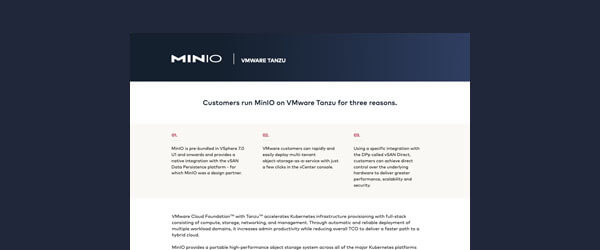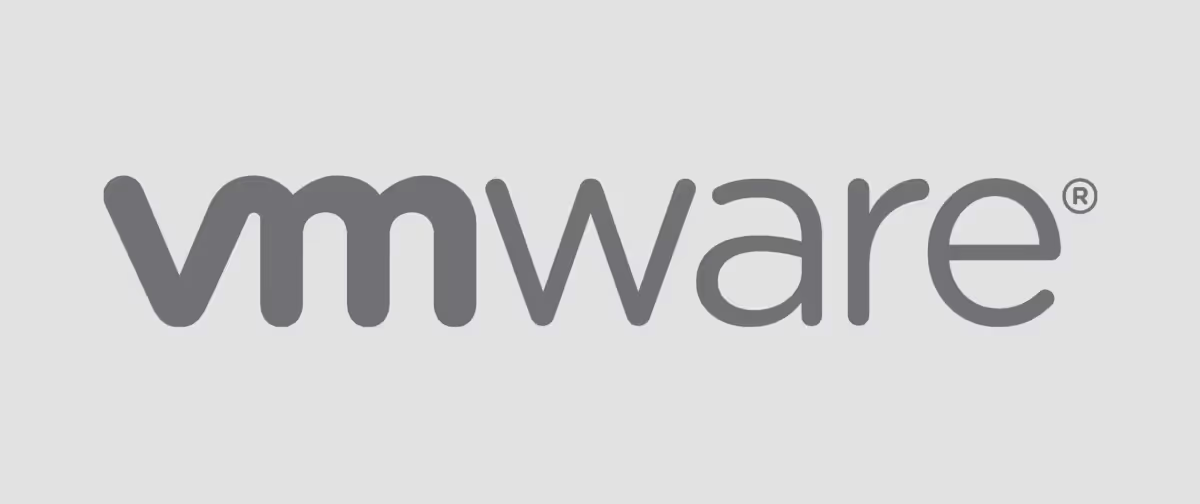
MinIO is pre-bundled in vSphere 7.x and onwards and provides a native integration with the vSAN Data Persistence platform and the VMware Cloud Foundations Data Services Manager.
VMware customers can rapidly and easily deploy multi-tenant object-storage-as-a-service with just a few clicks in the vCenter console.
Using a specific integration with the DPp called vSAN Direct, customers can achieve direct control over the underlying hardware to deliver greater performance, scalability and security
VMware Cloud Foundation™ with Tanzu™ accelerates Kubernetes infrastructure provisioning with full-stack consisting of compute, storage, networking, and management. Through automatic and reliable deployment of multiple workload domains, it increases admin productivity while reducing overall TCO to deliver a faster path to a hybrid cloud.
Developers can easily get an Amazon S3 compatible persistent storage service for all of their cloud native applications running on Tanzu Application Service (TAS) or Tanzu Kubernetes Grid (TKG).






